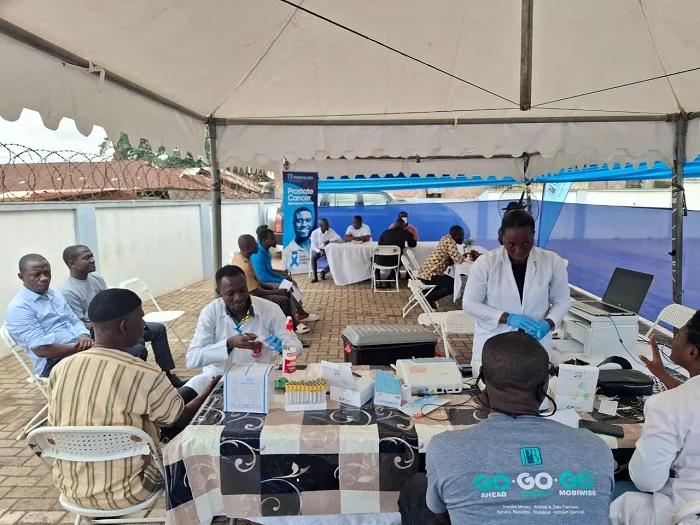
ALBANY – An advisory panel of state and union officials established in the wake of the 22-day state correction officer strike earlier this year is asking state leaders to expand the use of segregated confinement to discipline inmates.
The committee found that the state’s Humane Alternatives to Long-Term Solitary Confinement Act or the HALT law, which took effect in 2022 in a move to reduce isolation of inmates, too greatly restricted the ability of prisons to punish inmates who rioted, tried to escape, engaged in sexual harassment and gang-related extortion, lewd conduct and “unhygienic acts” such as throwing feces and urine on staff.
Under the panel’s proposed changes to state law announced Friday, New York prisons would reduce the subjectivity of standards to allow segregated confinement – a form of isolating punishment traditionally known as solitary confinement – for all of those offenses.
“The goal of the HALT Committee is to provide the Legislature with recommendations to enhance safety for both our staff and the incarcerated, while maintaining the core principles and intent of the HALT Act,” Daniel Martuscello, commissioner of the State Department of Corrections and Community Supervision, which operates the state’s 42-facility prison system, said in a statement. “We believe we have achieved this goal in a way that will ultimately lead to better outcomes and safer facilities. It is my hope that the Legislature considers these changes as an important evolution of the HALT Act that reflects all we have learned since its inception in March 2022.”
Chris Summers, the president of the New York State Correctional Officers and Police Benevolent Association, said safety has long been his union’s top concern. He urged the state Legislature to adopt the recommendations and said the proposals were a “good start toward making our members safer, as well as all others who live and work inside our correctional facilities.”
To qualify for segregated confinement under the existing standard, DOCCS must show that an inmate not only committed an “enumerated serious offense,” but one so heinous or destructive that keeping the inmate in general population would create a significant risk of imminent serious physical injury to staff, other prisoners and an unreasonable risk to the security of the prison. It has not defined a violent felony act.
Under the new standard proposed by the committee, DOCCS could impose the confinement for committing either the serious enumerated offense or an act so heinous or destructive that it applies.
The panel found the existing system carries a lack of deterrents for repeat offenses committed in disciplinary housing as well as nonconfinable offenses committed in general population. The panel agreed that it contributed to “significant disorder” because it disrupted programming and infringed on the liberty of the rest of the prisoners.
The committee proposed allowing DOCCS to put reoffenders already in disciplinary housing with four hours of out-of-cell time, in either a therapeutic or recreation setting, without disrupting other prisoners. It proposed putting offenders who commit offenses in general population at least three times in 30 days into housing special or restricted housing units for up to 15 days.
The committee included members of DOCCS, the state’s Office of Employee Relations, Division of Criminal Justice Services and unions that included NYSCOPBA, the Civil Service Employees Association, Council 82 and Public Employees Federation, all of which represent employees in state prisons. They met with stakeholders that included the Center for Community Alternatives, Correctional Association of New York, HALT Solitary Campaign, Legal Action Center, New York Civil Liberties Union and Prisoners’ Legal Services of New York.
Listen now and subscribe: Apple Podcasts | Spotify | RSS Feed | SoundStack | All Of Our Podcasts
Prior to the passing of HALT, prisoners could be isolated for up to 23 hours a day. The law restricted hours of confinement of prisoners and established alternatives for rehabilitation. On Friday, the Legal Aid Society said the recommendations proposed by the panel should be thoroughly rejected.
“It’s little surprise that the culmination of closed-door talks driven largely by the corrections union is a set of recommendations to give officers sweeping new discretion to use solitary more often and for less-serious infractions,” it said in a statement. “The Legislature passed HALT precisely because solitary is dangerous: it inflicts lasting mental and physical harm, fuels violence, and makes prisons less safe. From the very start, DOCCS has resisted complying with HALT, and these proposals reflect yet another attempt to sidestep the Legislature’s reasoned judgment that solitary must be strictly limited in New York. ”
Any proposal would need to pass both the Assembly and Senate and be signed by Gov. Kathy Hochul.
The committee was formed following a 22-day correction officer strike last winter that prompted Hochul to order the New York National Guard to help secure state prisons. Correction officers and state Republicans have blamed the HALT Act as the reason for skyrocketing prison violence that saw inmate-on-staff assaults increase from 1,052 in 2020 to 2,069 in 2024 and inmate-on-inmate assaults increase in that time frame from 1,207 to 2,980. So far in 2025, there have been 1,175 inmate assaults on staff and 1,650 inmate assaults on inmates, DOCCS statistics show.
Assembly Members David DiPietro, R-East Aurora and Andrea Bailey, R-Geneseo, lauded the proposes reforms.
“The statistics speak for themselves – our correctional facilities are facing serious safety challenges that demand immediate and thoughtful action,” said Bailey, whose district includes parts of Wyoming County. “The HALT Act has resulted in consequences that have compromised safety across New York’s correctional system. These recommendations are not merely policy suggestions – they are a critical starting point in an effort to protect lives and restore order within our correctional institutions. I urge my colleagues from across the aisle to bring these recommendations to the floor. If we fail to act, these proposals remain just words on paper. And words alone will not keep anyone safer.”
DiPietro said the proposals would do a “great job at addressing gaps that currently limit the use of segregated confinement for serious offenses like sexual harassment, lewd conduct, extortion, riot and escape attempts,” adding, “These are common-sense reforms that prioritize safety for all.”
State Sen. George Borrello, R-Sunset Bay, called the recommendations a step in the right direction that “would help curb some of the most extreme conduct by inmates” threatening the health and safety of prison employees.
“The problem is, I don’t have much confidence the Democrat majorities are going to move on this,” Borrello said, referring to the Democrats who control both the Assembly and Senate. “We’ve seen it over and over again. Whether it’s their so-called criminal justice reforms, their radical climate agenda or other extreme policies, they consistently ignore reasonable fixes from stakeholders and nothing changes.”
Senate Minority Leader Robert Ortt, R-North Tonawanda, said in a statement: “Albany Democrats have shown more concern for violent inmates than for the safety of corrections officers, prison staff and peaceful incarcerated individuals. The Legislature must act immediately on these reforms to demonstrate to our corrections officers that progress is being made, and we must remain committed to improving the working conditions in our prisons.”
A spokesperson for Senate Majority Leader Andrea Stewart-Cousins, D-Yonkers, said the plan would be reviewed. Assembly Speaker Carl Heastie, D-Bronx, through a spokesperson, declined comment.
Assembly Majority Leader Crystal Peoples-Stokes, D-Buffalo, declined comment but said the proposals would be thoroughly reviewed. Spokespersons for Assembly Members Patrick Burke, D-Orchard Park; William Conrad, D-Tonawanda; Patrick Chludzinski, R-Cheektowaga, and Joseph Sempolinski, R-Canisteo, who represents Cattaraugus and Allegany counties, all planned to review the proposals.
“I think it’s safe to say, from what the COs are reporting, that a revisit of HALT is warranted,” Conrad said.
Get local news delivered to your inbox!
Subscribe to our Daily Headlines newsletter.
* I understand and agree that registration on or use of this site constitutes agreement to its user agreement and privacy policy.
Robert Gavin
Albany Bureau Chief
Get email notifications on {{subject}} daily!
Your notification has been saved.
There was a problem saving your notification.
{{description}}
Email notifications are only sent once a day, and only if there are new matching items.
Followed notifications
Please log in to use this feature
Log In
Don’t have an account? Sign Up Today



